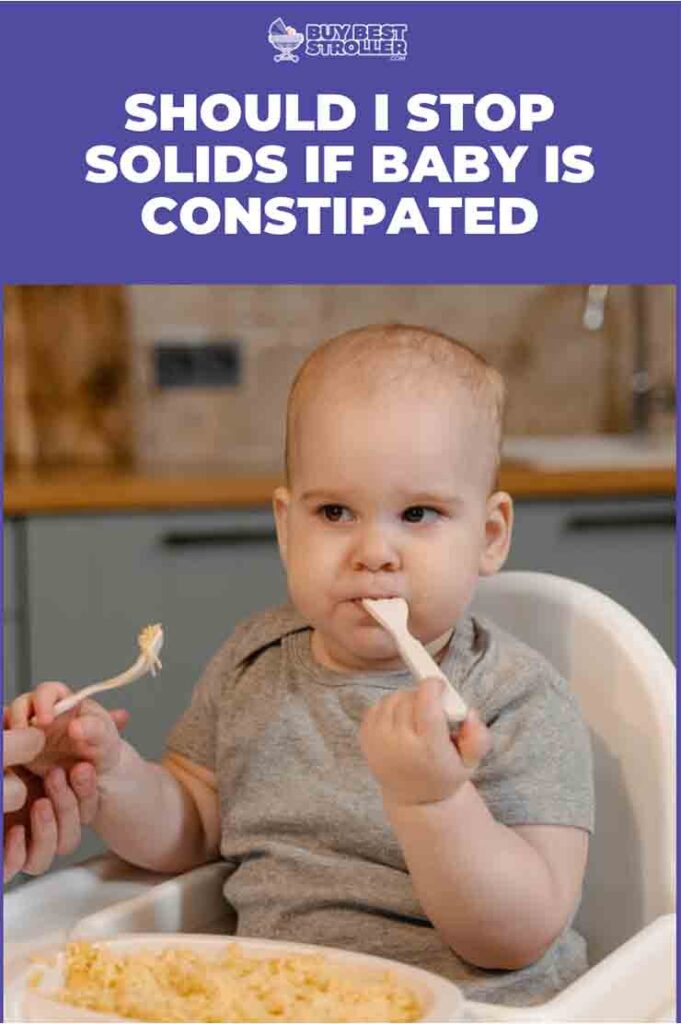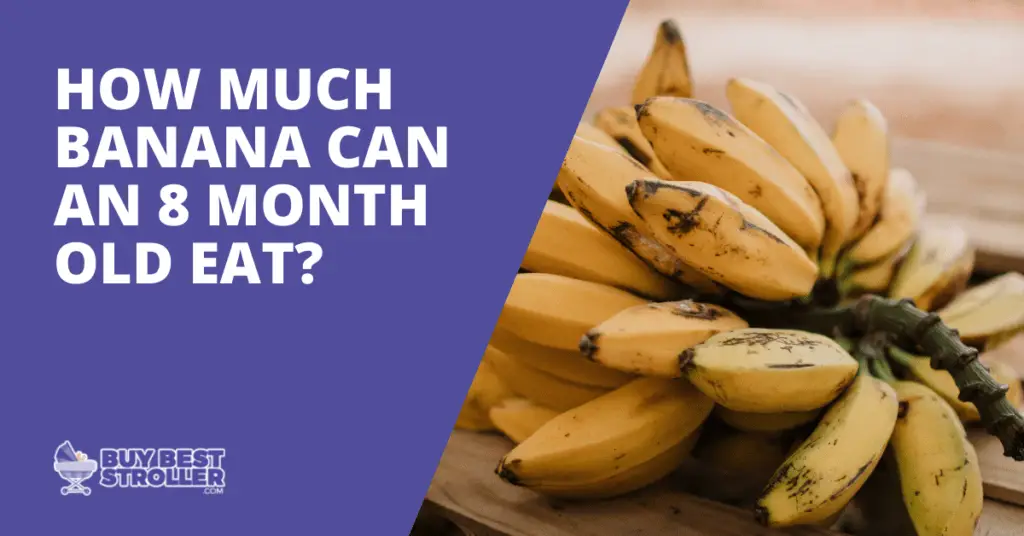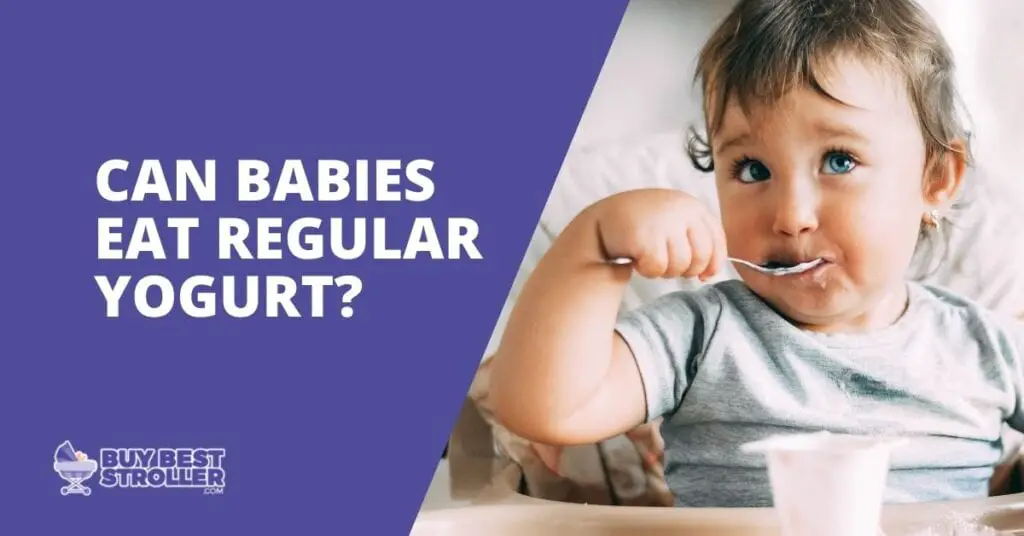Should I Stop Solids If a Baby Is Constipated?
Right, If your baby is constipated, you should avoid giving them bananas or sweet potatoes because they are constipating. Constipation may be a sign that your baby is sensitive to that food.
You should give your baby whole wheat or barley cereal instead of rice cereal and all fruits that begin with the letter “P” (prunes, plums, pears, peaches). These fruits will help soften your baby’s stool, so give them often if your baby is having hard stools.
Constipation can occur when babies begin to eat solid food. That’s because they don’t consume enough fiber. You can add fiber to your baby’s diet by giving them pureed vegetables and fruits. You can also give whole-wheat cereals or multigrain cereals.
Should You Feed A Constipated Baby?
You shouldn’t stop feeding a constipated baby. Constipation usually occurs when a baby starts eating solids and has problems passing stools. If your baby is constipated, you should take the following dietary steps to ease constipation:
- You can try a different brand of formula if you’re bottle-feeding after consulting your doctor. Breastfeeding should never be stopped due to constipation. If they take it, you can give them more breast milk or formula.
- If your baby is eating solids, You should try feeding your baby foods that are rich in fiber, like pureed prunes or peas, or cereal containing barley or whole wheat.
- It may be helpful to switch your baby from rice cereal to oatmeal or barley cereal. In some children, rice cereal may cause constipation.
- You can give your baby apple juice, pear juice, or cherry juice each day if he does not yet eat jar food. You can reduce your baby’s juice intake if his stools become too loose.
- Never give your baby enemas, laxatives, or suppositories unless the doctor tells you to.
If these dietary changes don’t work, It is time to contact your child’s pediatrician.
Can I Give Constipated Baby Water?
Sure, you can give water to your constipated baby. Water will help your baby pass their stools more easily. Whenever a baby drinks fluids, their stool does not become too dry, which makes passing it easier. Keep giving your baby breast milk or formula, and introduce water with meals.
It is recommended that newborns between the age of two and five months are given one to two ounces of water once or twice a day. According to some pediatricians, adding one teaspoon of brown sugar per ounce of water may help to relieve constipation.
How Long Is It Ok For A Baby To Be Constipated?
Baby constipation is okay for 3 to 5 days but longer than 7 days is not. If your baby also shows other symptoms, you must speak to your pediatrician. As a first-line treatment, the pediatrician may suggest home remedies for baby constipation.
Why Do Babies Get Constipated?
Babies get constipated because their abdominal muscles are still developing, so they may have to exert a bit of effort when pooping. Baby without much abdominal muscle needs strain to poop, even when it is soft. Pushing and straining just a little is normal when passing a stool for babies. It’s their exercise, they are building their abdominal muscles.
In most cases, babies become constipated during the transition time from breast milk to formula or from breast/formula milk to solid foods. Formula-fed babies are less likely to be constipated than breastfed babies.
Whenever the baby is introduced to new food after six months, he may become constipated. This is because the digestive system of babies is not quite fully developed, and they are thus unable to adjust quickly to new foods.
When introducing new food to a baby, be sure to wait 3 days before giving it, which helps to check for allergies and prepare the digestive system for this new food.
What Are The Symptoms Of Constipation In Babies?
Constipation isn’t only about your baby’s frequency of pooping. How tough it is for her to poop also matters. There is no problem if they pass soft, easy-to-pass stools every 4-5 days.
Here are some symptoms of constipation in babies:
- Pooping fewer than three times a week
- More frequently spitting up and being fussy
- Have difficulty going or seem uncomfortable
- Dry, hard stools
- On the toilet paper or in the stool, blood is present
- They move their bodies in different positions or clench their buttocks
- Underwear with traces of liquid or stool (a sign of fecal impaction)
Soiled underwear can (surprisingly) be caused by constipation in children older than a year. It happens when a child has runny poo or diarrhea, runs around a hard stool that causes a blockage.




